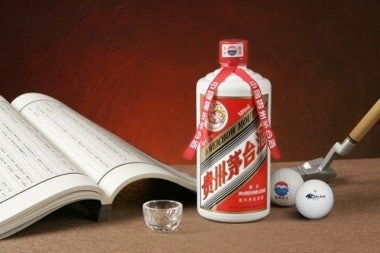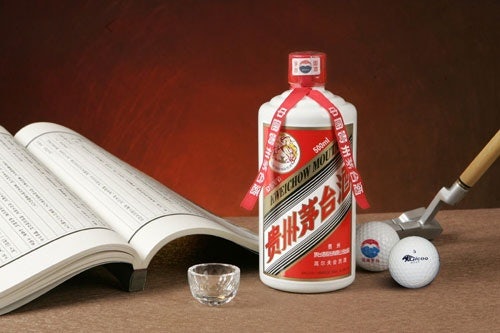Public Outcry Over Government Spending Hits At Luxuries#

During sessions at Beijing's National People's Congress this week and on social media platforms like Sina Weibo, debate is raging in China about officials' spending on wining and dining, funded by public money. While criticism about spending by government officials on luxury items is old news, and Beijing luxury retailers have come to expect sales spikes every March, this year particular attention has been paid to Moutai, the high-priced baijiu beloved of China's wealthy businesspeople and officials.
Recently ranked the fourth-most valuable luxury brand in China on the Hurun Report's 2011 list, in the last year Moutai has taken great pains to distance itself from the "luxury" tag. Upon hearing of his brand's inclusion on the Hurun list, Moutai spokesman Ye Yuanhong told Chinese media, “In regards to being included in Hurun’s luxury brand list, Maotai has never claimed itself eligible to be considered a luxury brand. We don’t know anything about Hurun’s list, and wish to distance ourselves from it.”
Last week, Moutai general manager Liu Zili added fuel to the fire of public debate on government official spending, saying at an event, "If Moutai was banned [from government functions], I would be confused what drink could be served at government receptions. Should it be Lafite instead?" Liu's remarks have, since last Friday, touched a nerve among Weibo users, with the subject discussed in more than 2 million entries since the weekend.
"If officials pay themselves, nobody will care what kind of drink they have. But how can they spend taxpayers' money on drinking Moutai or Lafite? How about setting a cap of 30 yuan (US$4.75) for each meal per person if a meal is necessary for overtime work?" read a Weibo post on Tuesday.
...
The retail price of an ordinary 0.5-liter bottle of Moutai that contains 53 percent alcohol has surged from about 200 yuan per bottle in 2003 to more than 2,000 yuan per bottle in 2011, an increase of nearly 1,000 percent. Widely recognized among the favorite options at government receptions, the liquor brand has become a watchword for misuse of public funds and corruption by officials in China.
In his proposal to ban Moutai in government dining, political adviser Lin Jialai termed public-funded government receptions a major driving force behind the soaring price of the liquor.
Moutai has had a very uncomfortable relationship with the word “luxury” for quite some time. In November 2011, stories broke among Chinese media that Moutai would apply to be listed as an “international luxury brand.” As the story went viral, Moutai Group Honorary Chairman, Ji Keliang denied that Maotai had such plans, saying he is “opposed to Maotai baijiu being referred to as a luxury good.” But with price increases for bottles of Moutai showing no sign of stopping, and the spirit far beyond the price range of most consumers, it's hard to argue it's not a luxury.
